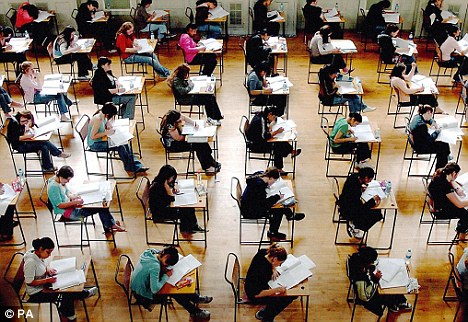Their hope bursts out of a system designed to thwart it.
–Program Notes, Just Numbers
Darius pokes his head around the corner to make sure the coast is clear. He holds his breath, all senses on alert. Is there graffiti warning him of new territorial shifts? Not this morning. He sprints to the bus, gets on it safely, and can breathe while the bus takes him across the city and drops him off a few blocks away from his school. He gets off and skirts dangerous territory, passes under an overpass where new tags are going up. The taggers look at him but don’t follow him. Darius survives another morning commute.
And gets to school 5 minutes late. He is sent to the principal, and to detention.
It doesn’t take a whole lot of brains to understand that a child whose commute is anything like this is not in a state to learn. And that rather than sitting that child in detention, or in a test, or test prep, we adults need to offer healing now and community safety long term. Once our children are safe, we can turn our attention to education.
Darius’ story is one of six that, along with impressive ensemble poetry, make up Just Numbers, the new Chicago Slam Works play. Why do adults need to watch other adults performing a play from kids’ perspectives? Because we aren’t listening to the kids’ voices. Students are hidden from public view in their schools, in segregated neighborhoods. But over and over the students in the play remind us: they aren’t blind; they see exactly what’s going on. They see they are pawns in a game of powerful players whose rhetoric of student achievement masks self-serving economic and political machinations. Students’ actual lives, interactions, and thoughts are presented against a background of Mayor Rahm Emanuel’s speeches on education policy, which sound distant, irrelevant, and offensively glib.
Chicago Public School students are very clear about what they need: safety, health, parents who can be present for them, who are not forced to work multiple jobs, who are not in prison, killed, or deported, and teachers who will not be replaced next year or next week. And in the classroom: an education that respects students’ intelligence and humanity.
In case white parents in Chicago – half of whose children don’t go to CPS — don’t understand why teachers voted to go on strike next week, this play offers a point-by-point lesson: from the questionable funding, operating, and staffing of charter schools, to the high-stakes testing forced on Black and Brown children.

This is not public education. Public education means that all children are valued, that people hold accountable the system, its architects and decision-makers, not individual teachers and students. Many Americans have bought into the education reform emphasis on test scores, but the world’s most successful education system rejects testing — and calls out the testing profiteers. Finnish education minister Pasi Sahlsberg insists: a successful public education system is based on equity of quality education. It values informal learning and emphasizes reciprocal trust between students, teachers, parents, and administrators. “Measuring of what matters in school is difficult, if not impossible. It is character and mind that matter… not being among winners in knowledge tests.”
Public education requires that the voices of people in schools – students, teachers, and parents – are at the center of decision-making about schools, both in the classroom and in the district. Not bankers, realtors, and politicians. Let’s act like a public: let’s listen to public school students and teachers, take seriously their stories, their questions, and their ideas, and demand that our leaders stop treating them like “just numbers.”